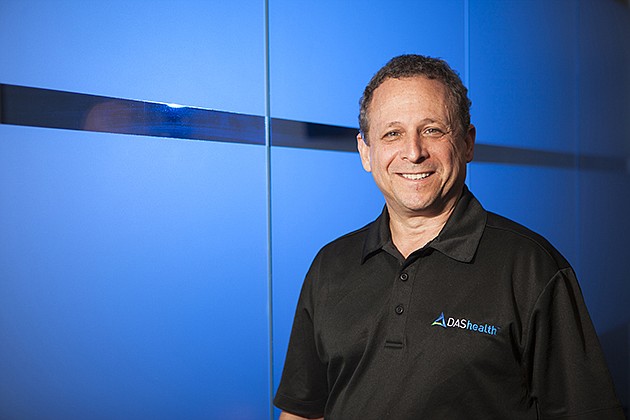- November 24, 2024
-
-
Loading

Loading

The idea for DAS Health came to David Schlaifer during a family conversation.
In the early 2000s, Schlaifer wanted to start a back-end focused business for entrepreneurs. The strategy was to develop software that simplified operations for entrepreneurs, allowing them to focus on the creative side of their business.
Schlaifer's brother, a cardiologist, loved the business idea and had one suggestion: Target the medical field. Schlaifer listened, and Tampa-based DAS Health, which offers health and IT management for health care entities, was founded in 2003. Schlaifer is now president and CEO of the company.
In the early stages, electronic health record companies asked DAS Health for help with the cumbersome implementation process. As more health care firms shifted to electronic health records, around 2010, DAS Health's revenues took off.
In 2010, the company had roughly $1.5 million in revenues. In 2015, it reported $10.75 million, more than double its revenue in 2014 — a combination of organic growth and acquisitions.
But the company's growth comes from more than work implementing electronic health records. For example, the company helps medical offices with more than $130 million in annual billing through its revenue management software products. It serves more than 1,100 physicians who work with at least 4.5 million patients.
Just as it was his idea for helping entrepreneurs, the mission at DAS Health is to “help physicians get back to being physicians,” Schlaifer says. “So we are constantly trying to answer the question: 'What else do health care providers need?'”
Among the answers to that question are technology, managed IT services, revenue management services, regulatory assistance and help with handling chronic care issues.
The company's wide service offering has led to significant organic growth. “A lot of companies in our space have struggled,” Schlaifer says. “We've been able to continue to provide services without selling new EHRs.”
Yet the firm still sought acquisitions to continue to diversify and offer new products. It purchased two companies in late 2015 and another two earlier this year. Schlaifer declines to share terms of the deals, but says they were all self-funded.
One acquisition, of Charlotte, N.C-based medical software firm Conxit Technology Group, will help DAH Health move toward the new frontier in health care: mHealth, or mobile health. Conxit works on mHealth software for mental and behavioral health-risk assessments. The Conxit deal was announced in January.
The acquisition fits with work DAS has been doing on its own. DAS had already developed assessURhealth, an iPad-based application for mental health screening. It targets behavioral health illnesses such as depression, anxiety risk, alcohol misuse and post-traumatic stress disorder.
DAS will continue to grow in 2016 and there will like be more acquisitions, but Schlaifer offers no projections. “I'm a believer that if you care for your employees and clients first, the revenue will follow,” he says.
The rapid revenue growth has also led to rapid geographical growth. Last year, DAS Health was in two or three states. Now it's in 50 states, with offices in Charlotte, Phoenix and Las Vegas, in addition to the Tampa headquarters.
The most recent acquisition, of Falcon Healthcare in Las Vegas, brought in an experienced technology and managed services team. “Managing the geographical growth is the most challenging thing,” Schlaifer says. “We're no longer a local company.”
Schlaifer travels two or three days a week, to get in front of clients and bring the local feel directly to them. Asks Schlaifer: “How can I know how we can help if I'm sitting behind a desk all day?”
Going national while maintaining a local feel also requires top employees who understand the firm's mission. Every new hire goes through between six and eight hours of interviews, split between six and eight one-on-one interviews with different employees and managers, Schlaifer says. There are also three or four tests per candidate.
The catch: If one employee on the team rejects the candidate, even if it's the eighth interview, “it's done,” Schlaifer says.
“You can be the most qualified person in the world, but that doesn't mean anything if you don't fit in with the company's culture,” he says. “I'd rather miss someone good than hire someone bad.”
DAS has grown from 33 employees at the start of 2015 to about 100 employees through June, which factors in the acquisitions. “It gets really tempting to hire people just to fill spots, but you can't do that,” Schlaifer says. “At the end of the day, it's worth the time.”
At a glance
DAS health
Year Revenue %growth
2010 $1.5 million
2011 $2.7 million 80%
2012 $2.7 million 0%
2013 $4.96 million 83.7%
2014 $5.26 million 6%
2015 $10.75 million 104%
Source: DAS Health